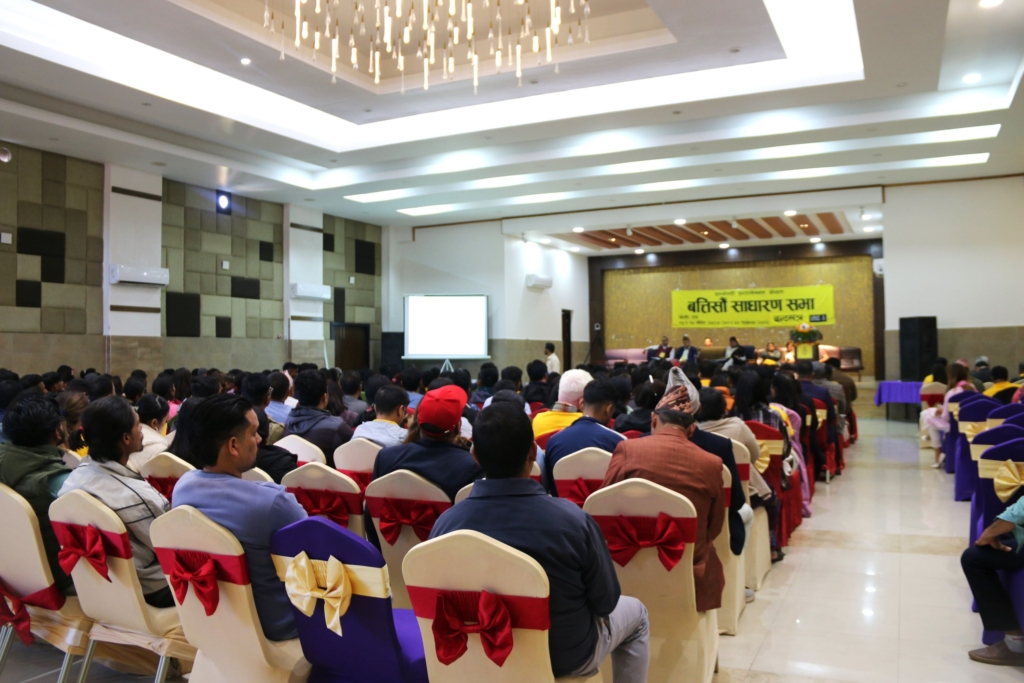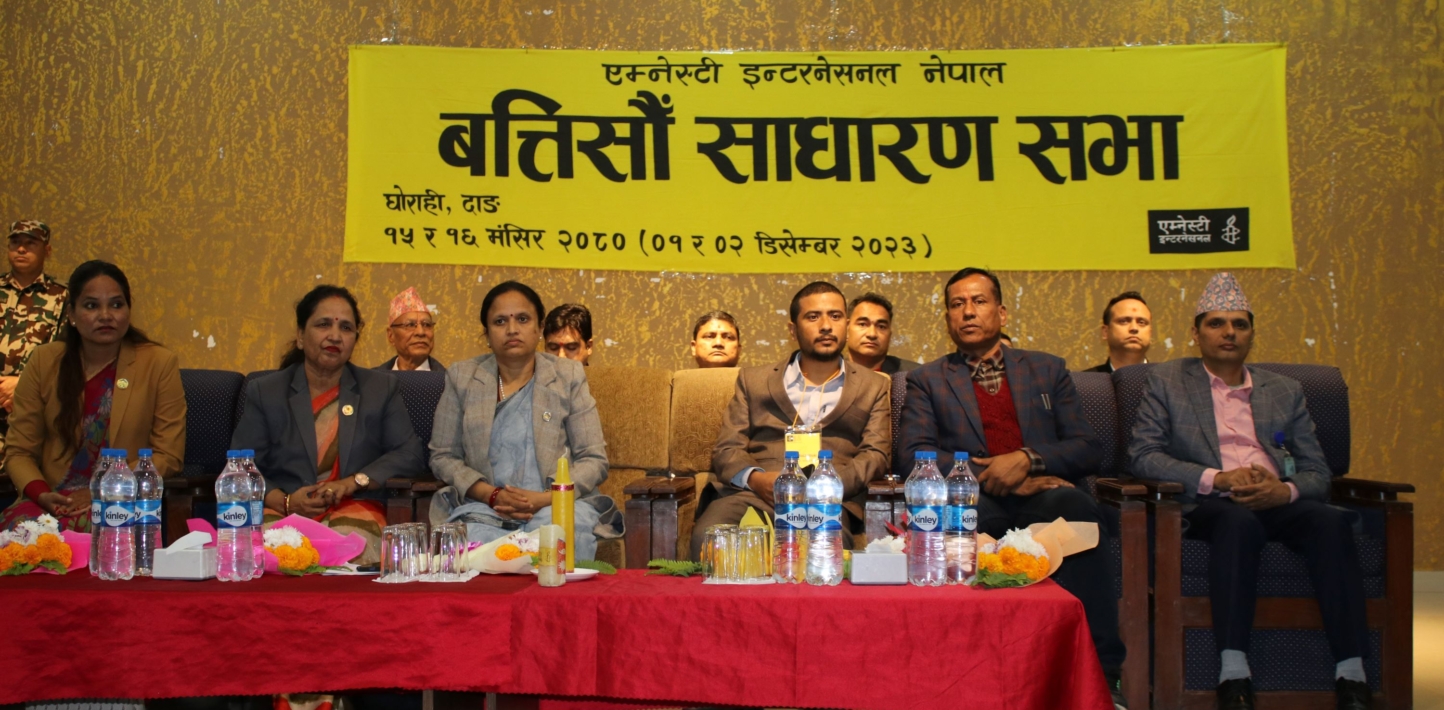Amnesty International Nepal (Amnesty Nepal) organised its 32nd Annual General Meeting (AGM) in Ghorahi, Dang on 1 and 2 December.
The general meeting held for two days discussed and approved the organisation’s annual report and the plan and budget for the year 2024. In addition, the AGM also unanimously approved the proposal table by the National Board to amend the organization’s Statute and by-laws.
The amended Statute and by-laws will reshape the organisation’s membership and governance structure which in turn is expected to make the systems and processes within the organization more robust, dynamic and cause focussed.
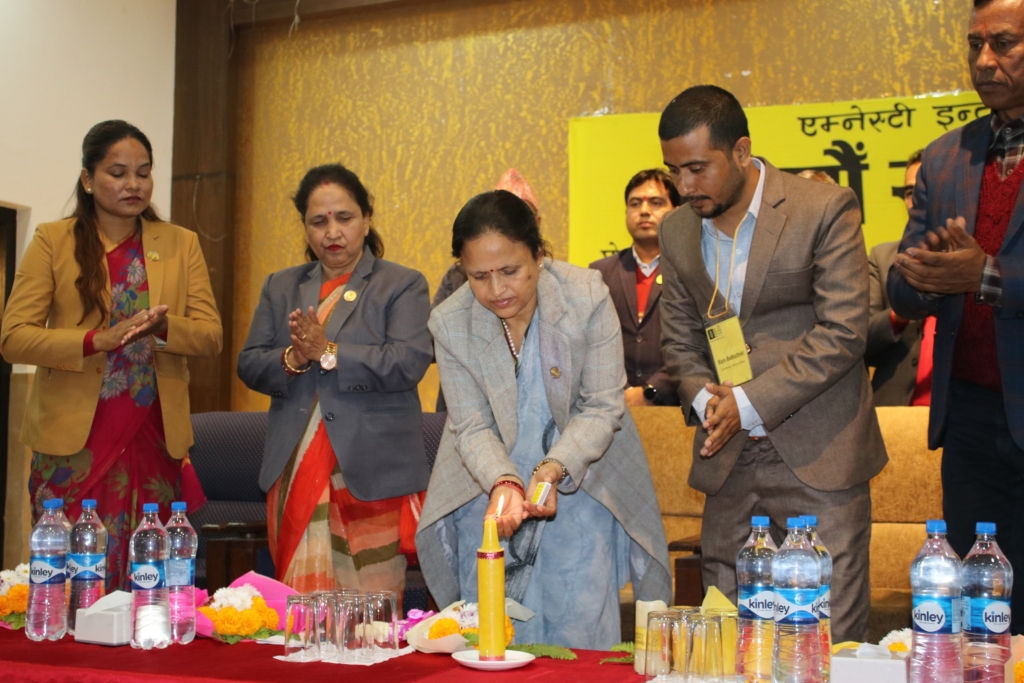
The inaugural session of the AGM was held on 1 December at the Hotel Mala Inn, Ghorahi, Dang, where Minister for Communication and Information Technology Honourable Rekha Sharma spoke about the role human rights organisations like Amnesty International have played in ushering in democracy and human rights in the public imagination in Nepal.
“Amnesty International Nepal is an organisation that has been continually working on human rights issues in Nepal. It has been advocating for human rights from the time when the government was intolerant of any form of public dissent and thus has played an important role in institutionalising democracy, and in helping us all exercise the rights we have today,” said Minister Sharma.
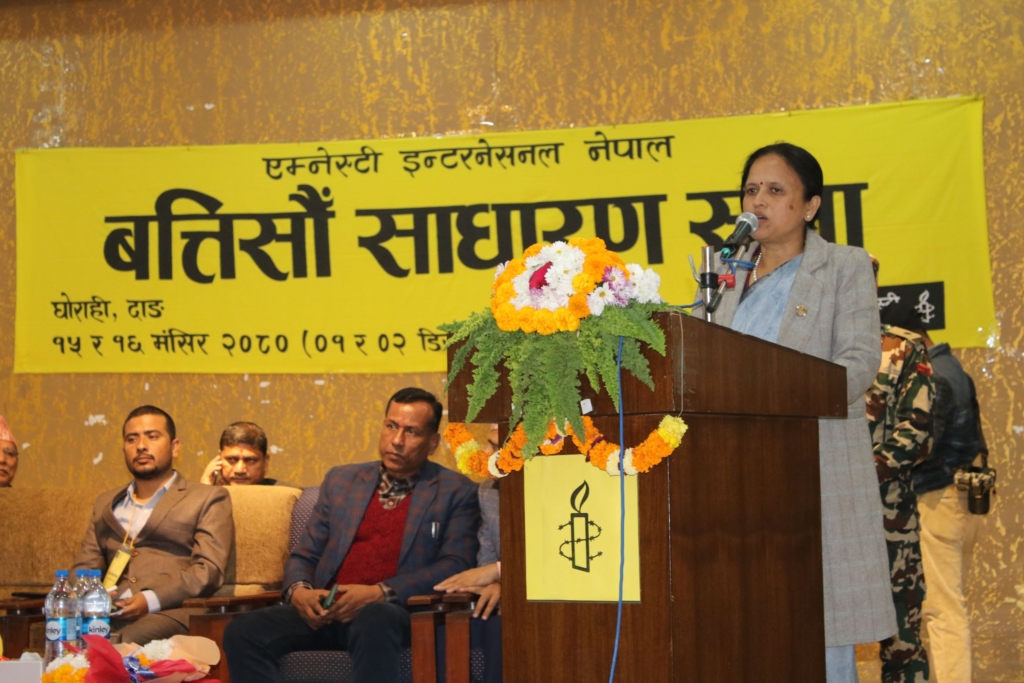
At the inaugural event, in the presence of several government officials, former Chairpersons of Amnesty Nepal Charan Prasai and Rajan Kuikel and Suman Adhikari, Founding President of Conflict Victims’ Common Platform, questioned the government’s intent towards resolving the contentious issues regarding the transitional justice bill, stressing on the fact that justice delayed is justice denied.
In response, Minister Sharma said, “All the questions raised here towards the government in respect to transitional justice are valid. I too am a victim of the conflict, and I agree that the government has taken too long to come to a consensus and deliver truth and justice to victims. Justice delayed is indeed justice denied, and the issue of transitional justice is one of our top priorities.”
Along with Minister Sharma, National Assembly Member Anita Devkota, Lumbini Provincial Assembly Member Loka Kumari BK, Ghorahi Sub-Metropolitan City Mayor Narulal Chaudhary, Federation of Nepali Journalists Vice President Uday GM, Chief District Officer of Dang Ram Bandhu Subedi, and others also spoke at the inaugural session.
Closing the inauguration, Amnesty Nepal Chair Bipin Budhathoki shared his vision of strengthening Amnesty Nepal’s humans rights movement through the robust strategic framework that the National Board has proposed.
On the second day of the General Assembly, the delegates and observers of Amnesty Nepal held a Human Rights Action, calling for an immediate and complete ceasefire in the Gaza strip putting forth their serious concern over ongoing human rights violations in Gaza.
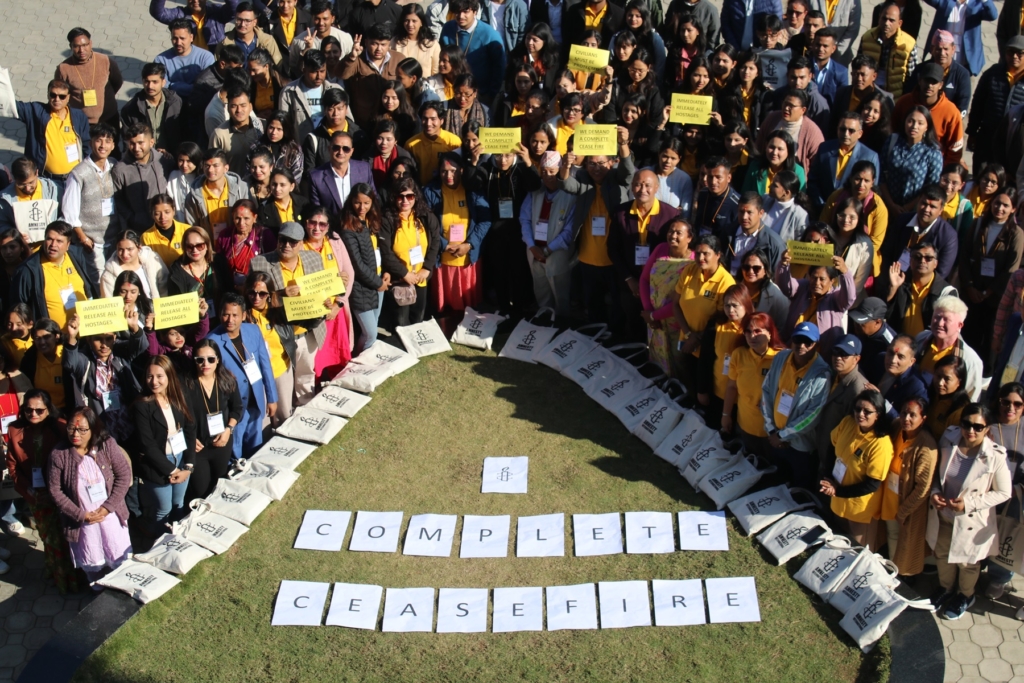
This was followed by the closed session of the General Meeting, chaired by Bipin Budhathoki, the Chair of the National Board of Amnesty Nepal, in which the annual impact report, audit and financial account reports, the proposed programme and budget for the year 2024, and the amendments to Amnesty Nepal’s Statute and by-laws were deliberated and passed.
“One of the most notable achievements of the 32nd General Assembly is that it has unanimously approved the proposal regarding the amendment of the Statute and by-laws of Amnesty Nepal proposed by the National Board. This is a very important step towards change for the organisation and it will give a sense of new zeal to the members and supporters who want to be more active in the human rights movement by being affiliated to Amnesty Nepal. It is believed that the new provisions will guide Amnesty Nepal’s entire campaign to be more robust, diverse and dynamic in tackling complex human rights issues of the day,” said Amnesty Nepal Director Nirajan Thapaliya.
In attendance were approximately 300 people, including representatives of Amnesty Nepal’s groups and youth networks in various districts of Nepal as well as members of Amnesty Nepal’s National Board and Appeal Committee, former chairpersons, volunteers and observers.
